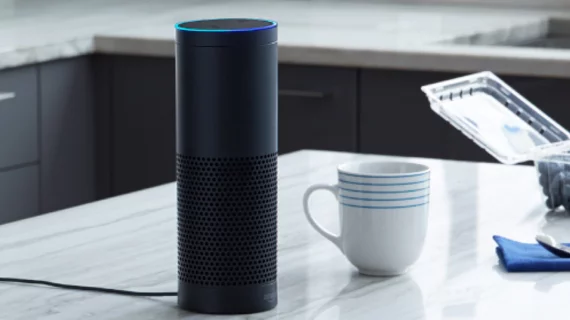Amazon's Alexa has its own ‘health & wellness’ team
A group of people within Amazon have been working to make its Echo device and Alexa virtual assistant more useful to clinicians, according to an internal document obtained by CNBC.
Made up of more than a dozen Amazon employees and led by manager Rachel Jiang—a veteran of Facebook and Microsoft who has been with Amazon since 2013—the “health & wellness team” within the voice assistant division has been working on how Alexa can adapt to the requirements of HIPAA (the Health Insurance Portability and Accountability Act).
Its initial focus would reportedly be diabetes management, a field commonly targeted by digital health applications, as well as maternity and senior care.
Amazon’s rumored forays into the healthcare space have attracted a lot of attention this year, particularly its vaguely defined partnership with JPMorgan Chase and Berkshire Hathaway. CNBC previously reported the company shelved plans to sell and distribute drugs to hospitals even after obtaining pharmacy licenses in many states.
Read more at the link below:

